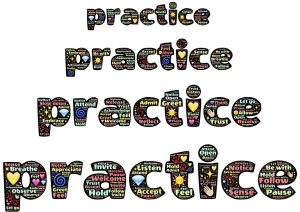The bridging of the gap between theory, its associated beliefs and practice depends at every step upon the human element. It is the reaction/response of the individual engaged in a task that will determine the outcome. To carry out a plan and actualize a theory requires the individual engaging in this endeavor, and how they do it, will determine its success or failure. Therefore, an important consideration is the make-up of the individual. The world works the way it does because of how we work, how we think and interact; the changes required are not only in the outside world but in ourselves as well.
It is never enough to tell people about some new insight or concept. Rather, you have to get them to experience it in a way that evokes its power and possibility. Instead of pouring more knowledge into people’s heads, it is essential to help them develop the skills necessary so they can see the world in a new way.
We all know that the way we use a tool determines its effectiveness. If we see ourselves as the mechanism or the tool to bring forth our thoughts, our actions, our activities, and the ensuing results, then we can reason that the more accurately we use it, the more effective will be the outcome.
Often the reason we find change so difficult is because we want to change something that we have never given enough disciplined and focused attention to, to understand why we have thought and behaved as we do. Everyone wants to be right, but no one stops to consider if his or her idea of right is right. Success is preceded by hours and hours of practice.
The importance of practice is its incorporation into daily activities. Time is a valuable commodity in everyone’s life. Oftentimes, people resist learning and practicing because they assume that it will take more time. “I don’t have the time to do this” is such a common expression. But to be conscious and aware of one self, as you go about living your life and performing your activities, does not require extra time once the skill is implemented and practiced. We take ourselves into whatever it is that we do. If we learn to be attentive in a constructive manner, it will not require extra time. That is a myth that we create to avoid having to change. And in fact, the more aware and present we are in ourselves, in our activities and our lives, the more productive we can become.
Make a commitment to follow a practice every day. It does not have to take a long time. You can keep it simple. It can be making a commitment to pause for a brief moment every hour (or whenever you can remember), to feel and sense your body in space and then taking a few deep breaths.
It can be sitting quietly for a few moments, feeling the rhythm of your breathing, closing your eyes and listening to sounds around you. It can be taking a walk, observing the environment and listening to the sounds around you. It can be sitting quietly and petting your animal in awareness, allowing your thinking mind to quiet down. You can decide what works for you. The objective is to make a commitment to pausing, observing, and sensing yourself and the world around you with a quieter mind.

